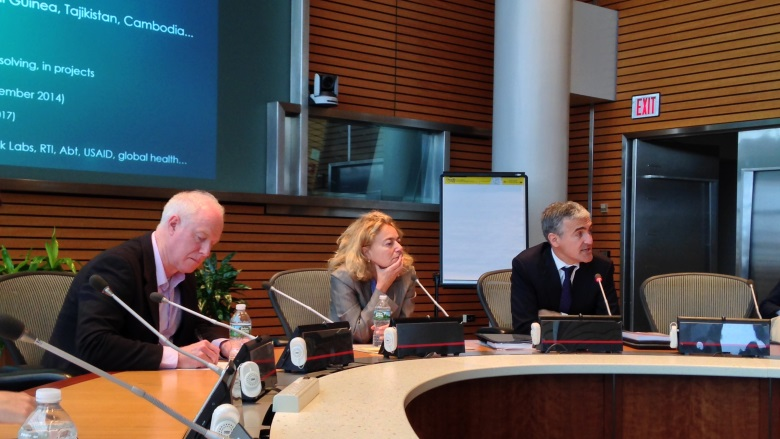Michael Woolcock is Lead Social Scientist in the World Bank's Development Research Group, where he was worked since 1998. For sixteen of these years he has also been an Adjunct Lecturer in Public Policy at Harvard University's Kennedy School of Government. His research focuses on strategies for enhancing state capability for implementation, on crafting more effective interaction between informal and formal justice systems, and on using mixed methods to better understand the effectiveness of "complex" development interventions. In addition to more than 100 journal articles and book chapters, he is the co-author or co-editor of thirteen books, including Contesting Development: Participatory Projects and Local Conflict Dynamics in Indonesia (with Patrick Barron and Rachael Diprose; Yale University Press 2011 – a co-recipient of the 2012 best book prize by the American Sociological Association's section on international development), Building State Capability: Evidence, Analysis, Action (with Matt Andrews and Lant Pritchett; Oxford University Press 2017), and co-lead author (with Samuel Freije-Rodriquez) of the World Bank’s Poverty and Shared Prosperity Report 2020: Reversals of Fortune. He was the Von Hugel Visiting Fellow at the University of Cambridge (2002), a founding member of the Brooks World Poverty Institute (now the Global Development Institute) at the University of Manchester (2006-2009) and of the World Bank’s first Global Knowledge and Research Hub, in Malaysia (2015-2017). An Australian national, he completed his undergraduate studies at the University of Queensland, and has an MA and PhD in comparative-historical sociology from Brown University.
MORE FROM Michael Woolcock
- World Bank Publications
- Video
- Blogs


